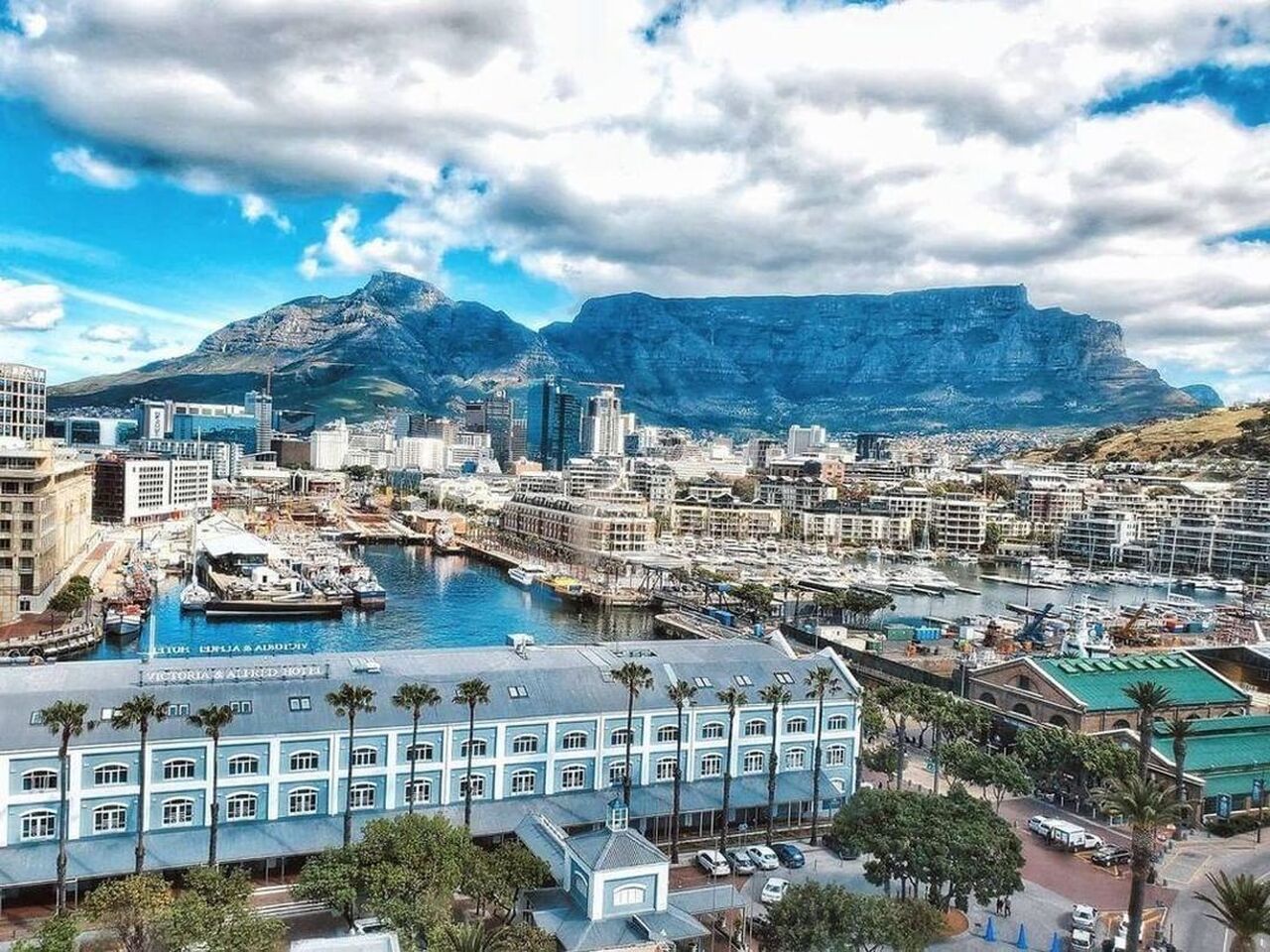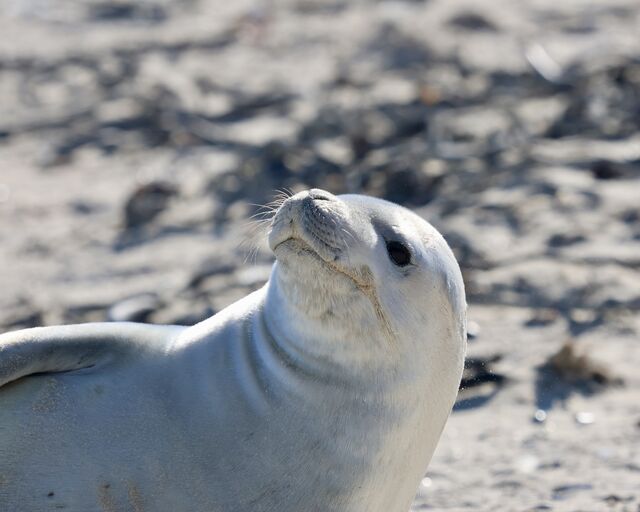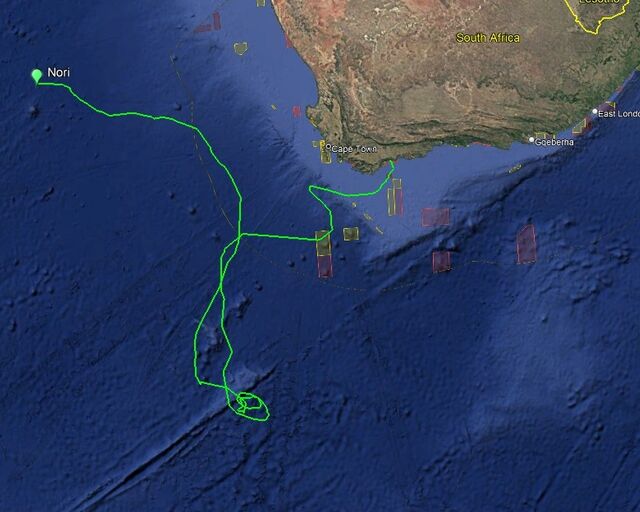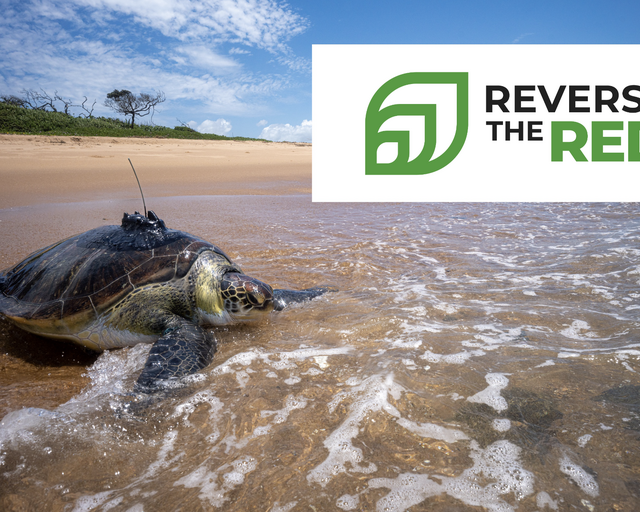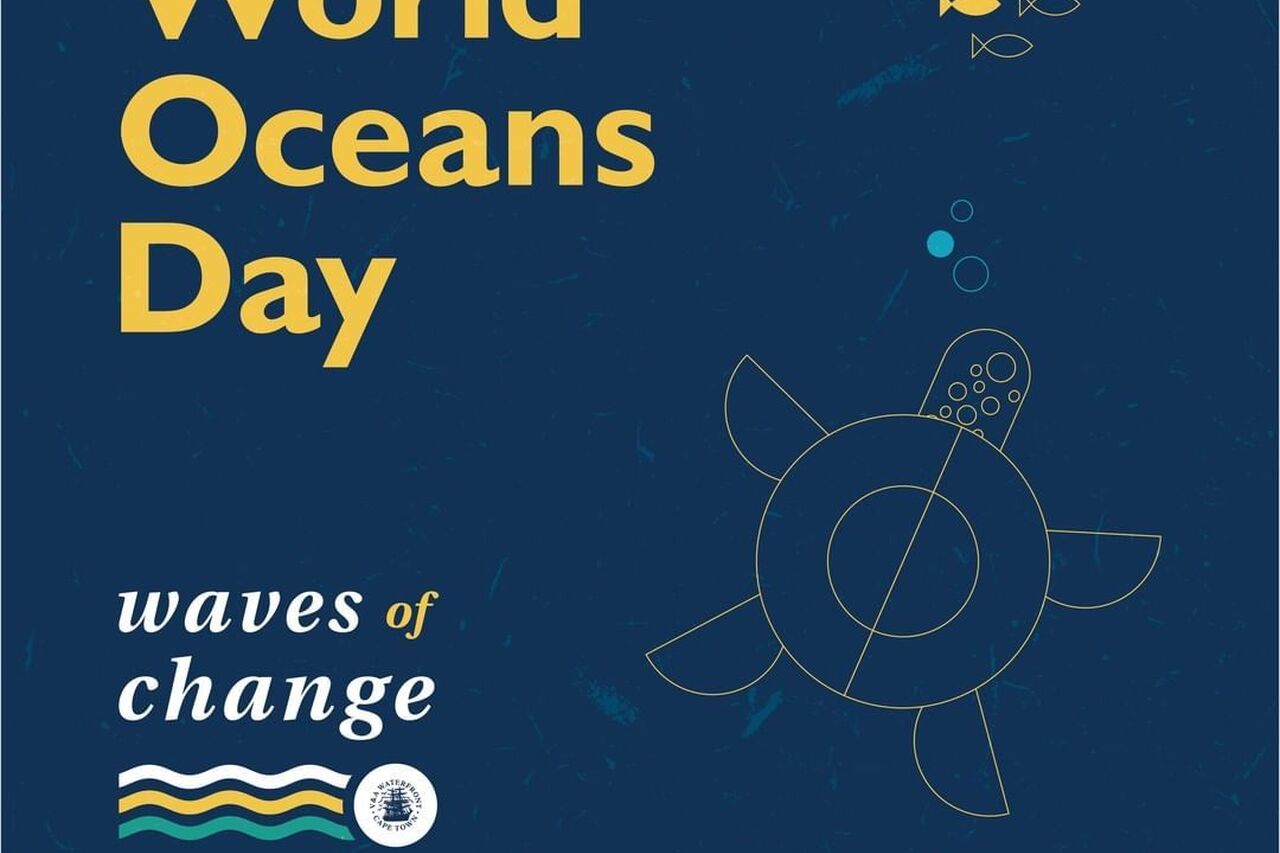
The theme for World Ocean Day this year is "The Ocean: Life and Livelihoods." The idea behind this day is to look at how human actions impact life beneath the waves, and how this, in turn, affects the lives and livelihoods of the billions of people that depend on the ocean's resources. We see the effects of this every day at the Two Oceans Aquarium, where we share a precinct with a working commercial harbour, eco-tourism businesses, and wildlife like ocean sunfish, dolphins and seabirds - and we get to see the results of the interactions of these systems. It's a delicate balance!
The V&A Waterfront, and the community of people and businesses that call the precinct home, are mindful of this balance - after all, we are the area that connects our City with the sea - and the leardership role we play in shaping our City's blue economy.
“The ocean is front and centre of almost everything we do, so we have a dual responsibility to protect the ocean from harm, while still unlocking the economic opportunities it presents,” said V&A Waterfront CEO David Green.
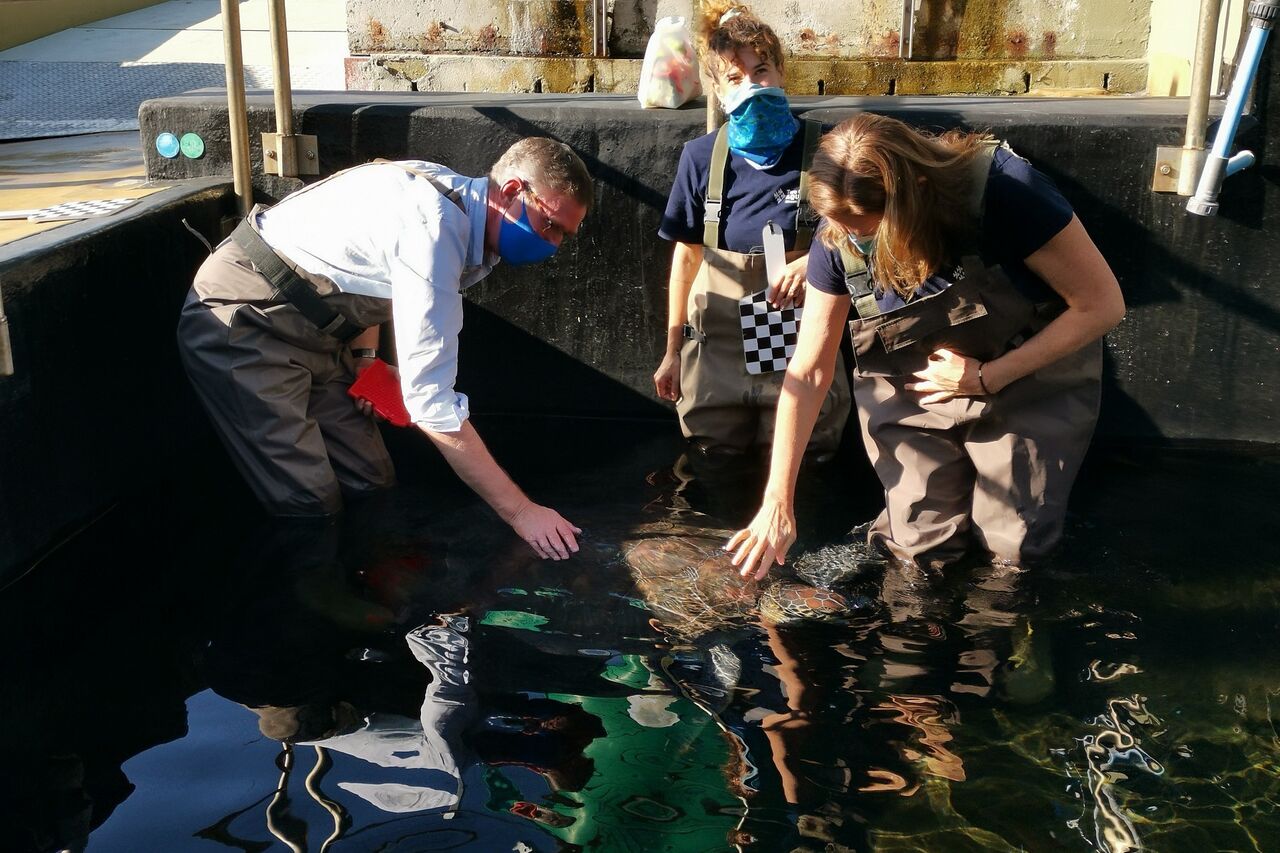
V&A Waterfront Ocean Cluster
It is estimated that by 2030, as many as 40 million people will be employed directly in ocean-based industries around the world, and many times more will be dependent on the output of this ocean economy. However, we're already facing a situation where upwards of 50% of coral reefs have been destroyed, and 90% of large, commercially important fish species have been depleted. If we are going to make use of the ocean, we're going to have to figure out more sustainable ways to do so, for the good of both the ecosystem and human livelihoods - the V&A’s Waterfront's "Ocean Cluster", the collaboration of all stakeholders in the precinct's ocean economy, work together to create a sustainable example of value-generating, and socially and environmentally responsible business - this includes the Aquarium. Let's take a look at some of the core elements of the Ocean Cluster:
Sustainability
A key driver of ocean sustainability is the Two Oceans Aquarium Foundation, a non-profit and public benefit organisation established just prior to lockdown in 2020. The work undertaken includes already well-established and respected marine science education programmes, all of which will continue under newly appointed Executive Chair and head of the V&A Waterfront’s Ocean Cluster, Ann Lamont and her team. Among the work being done is the Waterfront’s Marine Wildlife Management Programme and the Turtle Rehabilitation Programme.
Turtle Rescue and Rehabilitation Programme
The sea turtle rescue and rehabilitation programme has been running for almost a decade now. A well-known success story is Yoshi, the injured turtle who was rehabilitated and released into the wild 20 years after her rescue. Thanks to the GPS that the Aquarium fitted her with, people around the world followed Yoshi on her remarkable 41 000 km swim across the Indian Ocean, from South Africa, up to Angola, back down to South Africa and to Australia.
Turtles are one of the oldest species on the planet, dating back to the dinosaur era. However, changing climate and weather patterns are leading to more turtles straying into cold water currents where they go into thermal shock and end up stranded on beaches. Many also become enangled in fishing nets, ingest plastic, have their habitats destroyed or are killed for their shells. Despite six of the seven turtle species now being considered endangered, they are hardy creatures so it is possible to rehabilitate and successfully release them. But it takes time and a lot of effort.
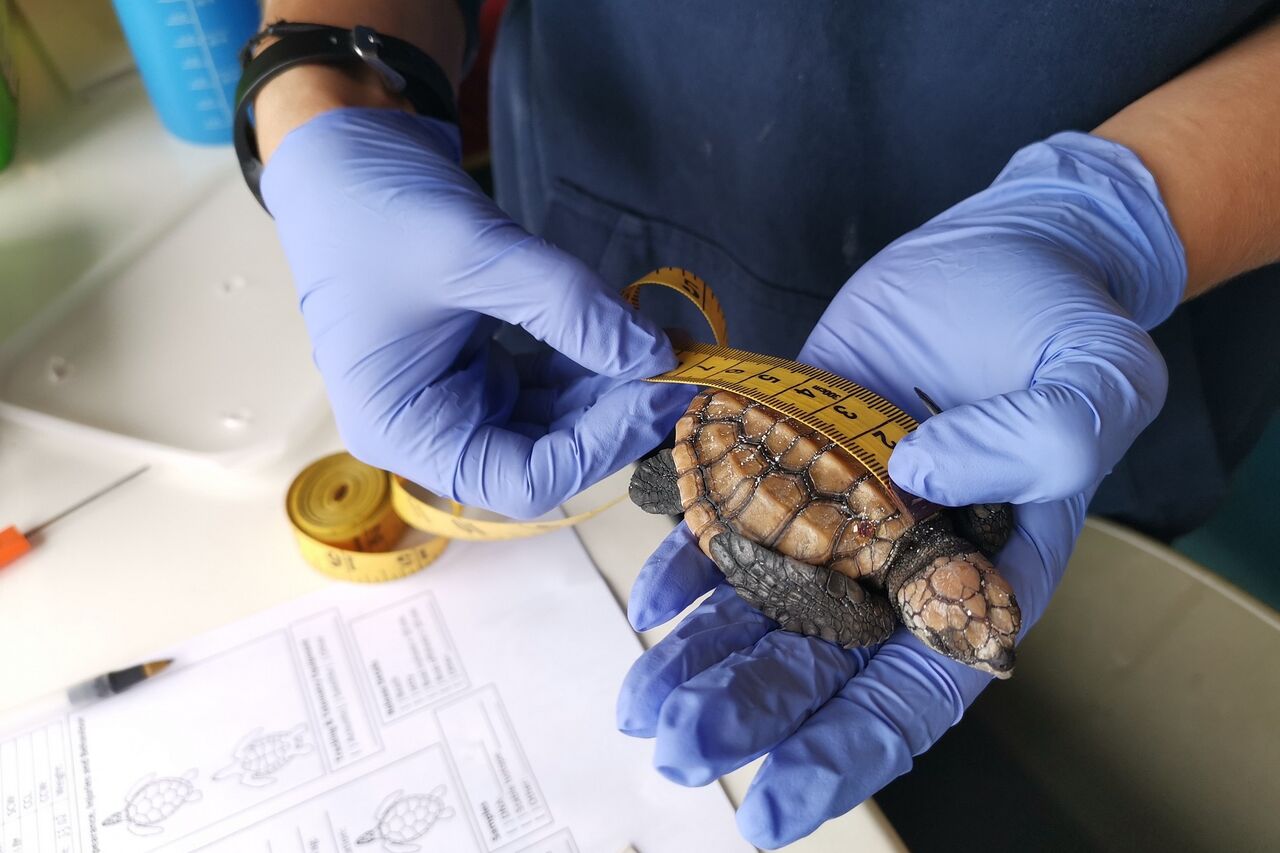
Turtles of all sizes and species are brought to the Two Oceans Aquarium by rescue groups, often requiring long-term treatment and care. Many are taken into the turtle equivalent of an ICU unit at the Aquarium where those in critical condition will require x-rays, CT scans, surgeries and in some sad cases, autopsies that will enable marine biologists to better understand the species. Some of these turtles spend decades in the special rehabilitation programme where they cared for before they, like Yoshi, can safely be released.
In 2020, 37 hatchlings and 10 sub-adult turtles were rescued. So far 59 hatchlings have been rescued in the 2021 season. 53 turtles in total are currently in the programme.
Marine Wildlife Management Programme
Seals and other marine animals are regular visitors to the Waterfront, and even whales and dolphins are sometimes spotted in the harbour. With funding and support from the V&A Waterfront, the Two Oceans Aquarium Foundation formalised the Marine Wildlife Management Programme to reduce conflict between wildlife, shipping, and other activities, and to minimise injuries to wildlife in the harbour through education.
The inquisitive nature of the much-loved seals – sometimes described as the dogs of the ocean –leads to them frequently becoming entangled in human litter and fishing gear. Despite the lockdown, in 2020 the programme disentangled 42 seals and responded to 178 wildlife call-outs for marine wildlife rescues and checks. A further 16 131 seal observations were logged, 2 883 hours were spent on marina patrols and 116 roofs were checked for birds.
The programme also monitors the health and quality of the waters of the Waterfront canals, marina and basins. A recent incident of mass fish deaths at the marina has been extensively investigated; and the Waterfront is working to resolve it.
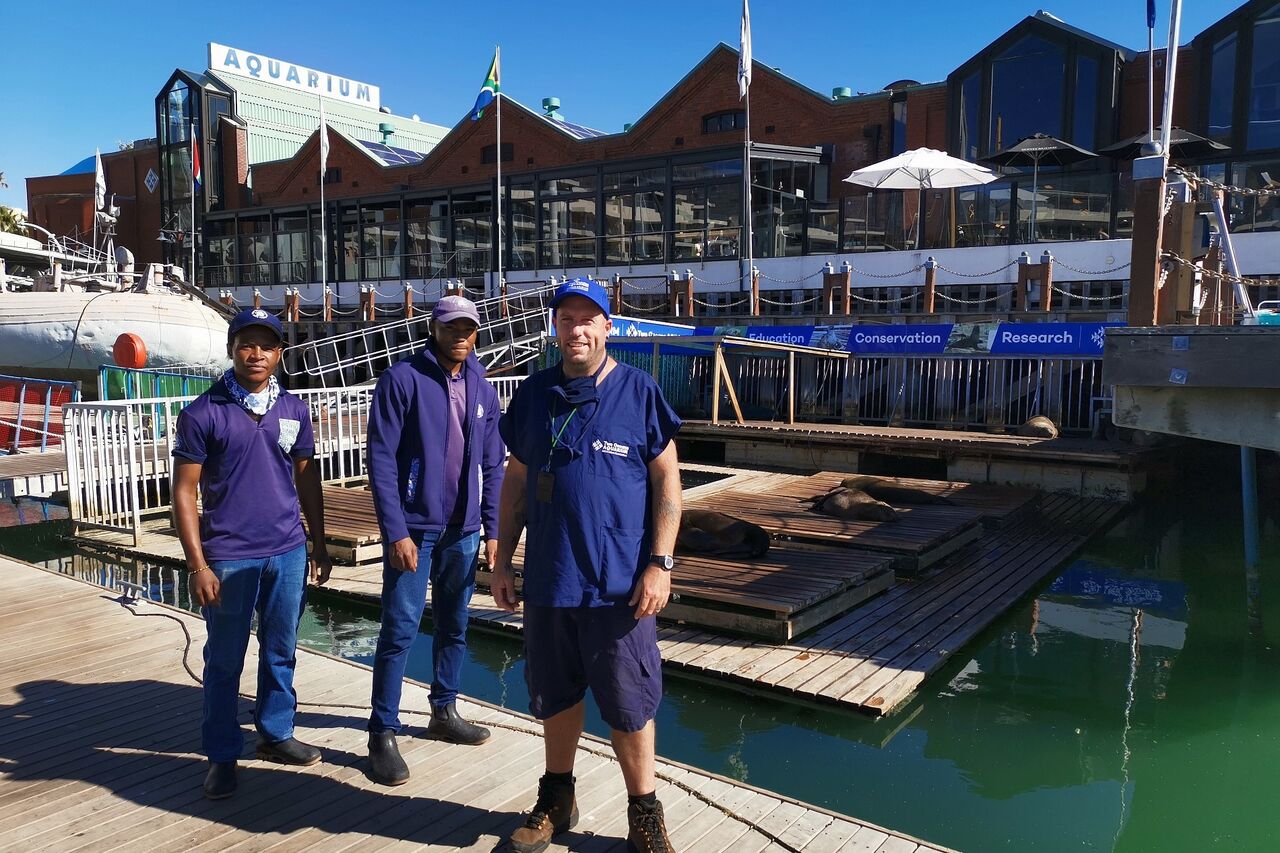
Waste Management
We share our ocean with a complex ecosystem, plants, animals, microorganisms all dependent on each other for balance and survival. When issues such as pollution, global warming and overfishing upset this delicate ecological balance, the ripple effect is widespread. But individuals and organisations can stop, and even undo some of the damage by making changes in their day-to-day lives which will protect our oceans and preserve marine resources. One place to start is with the waste that finds its way into our oceans.
The Waterfront has a dedicated crew of more than 90 people who are responsible for collecting, handling and sorting all of the precinct's waste at the V&A Waterfront’s on-site Waste Recovery and Recycling Centre. Over the last year, the team collected over 3 500 tons of waste and managed to divert 33%, or 1 250 tons of waste from landfill through recycling and composting. 44 tons of this waste was collected in the waterways alone! Approximately 15% of all recycled waste is plastic, and in 2017 the V&A Waterfront made a public commitment to eliminate single-use plastics across the property, and is now turning the tide against plastic through active engagement with tenants to recycle.
Ocean Economy
Given its location in the country’s oldest working harbour, the V&A has a proud marine heritage. Prior to lockdown the Waterfront was the most visited destination in Africa, and for visitors, much of its charm lies in the hustle and bustle of the busy port with vessels of all sizes leaving and arriving.
A third of the V&A’s ocean-fronting property is dedicated to ocean-based industries. The property has 3,5km of quay walls and jetties in the working harbour, and the marine and industrial arm currently works with 295 tenants ranging from casual tenants to 42 small fishing outfits known as Blue Boats, 68 permanent Marina berths, 25 charter boats and longer-term major tenants.
In April the V&A Waterfront announced the foundation of BlueCape, a collaborative partnership between the V&A and the City of Cape Town, “The primary intention of BlueCape is to grow our oceans-based economy by identifying and unlocking opportunities that will boost the creation of jobs that South Africa so desperately needs in a post-pandemic world. There are three key focus areas we’ve identified. One is marine manufacturing, which includes boat building and repairs, another is attracting superyachts to berth at the Waterfront by offering essential services such as repairs and crew changes, and the third is growing the number of ocean sports and sea trade events hosted in Cape Town by offering organisers a permanent platform here.”
BlueCape forms a critical part of the V&A’s Ocean Cluster based at the Waterfront. The cluster facilitates collaboration between all Ocean Economy Tenants and other stakeholders.
The Waterfront is also exploring the feasibility of developing an Ocean Economy Hub at its property. Green said, “We see this hub as providing a dedicated innovation, event, skills development, networking and co-working space for the Marine Manufacturing sector and other sectors of the Blue Ocean Economy.
In the future, we also look forward to growing sea-faring tourism and welcoming cruise passenger ships such as the Queen Mary again. Since developing the Cape Town Cruise Terminal we received exponential demand from international cruise line operators all wanting to visit Cape Town for the first time. For now, passenger ships can only dock in Cape Town to refuel, but the global rollout of vaccines is leading to renewed interest in cruise ship bookings for 2022, so we are confident we will see future growth from this segment.”
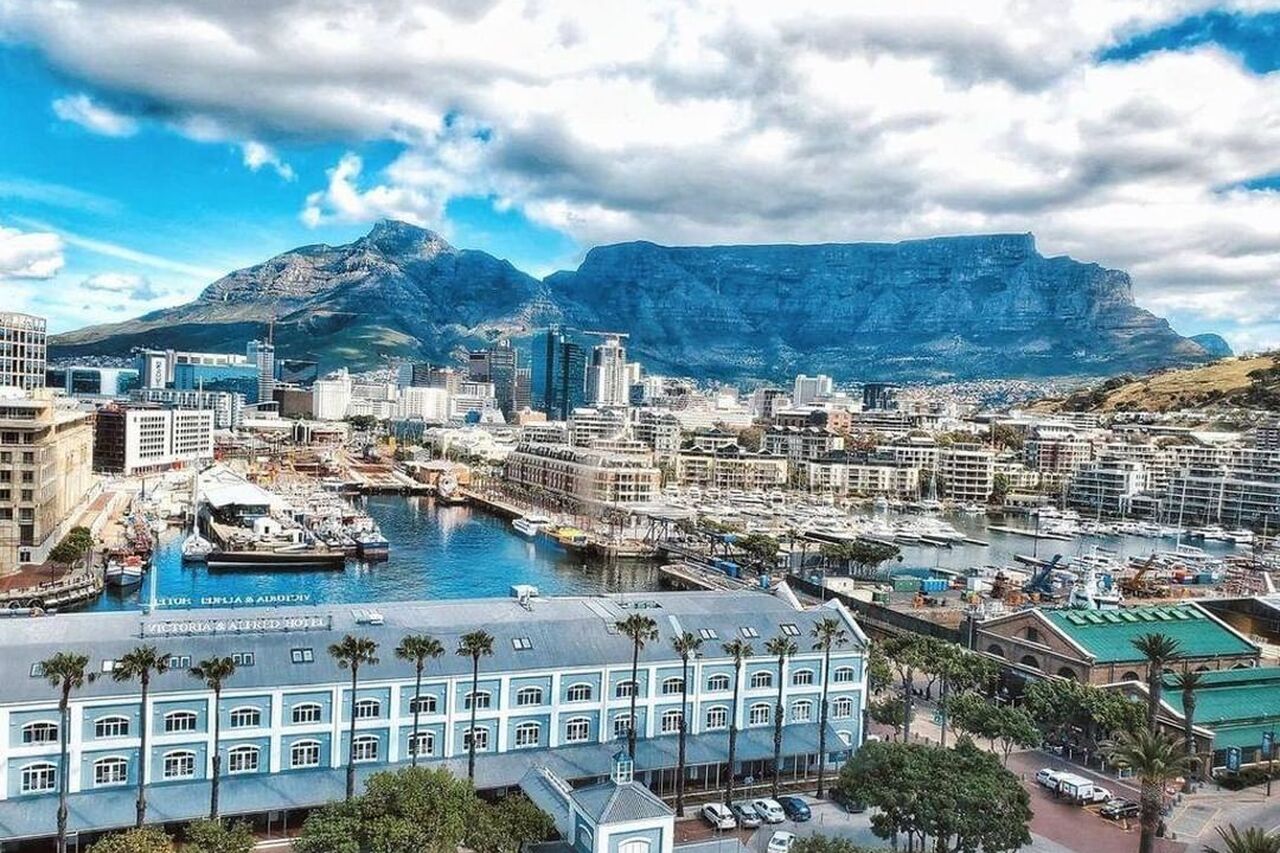
Related News
Sign up to our Newsletter
Receive monthly news, online courses and conservation programmes.
